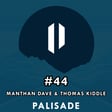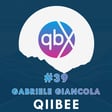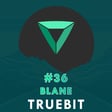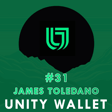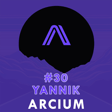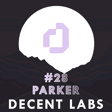
#34 - Prediction Markets, Post Election Rally and the Foundation Business Model
Guil is the founder of neow3j, a development toolkit that simplifies building dApps on the NEO ecosystem. Songping is a Senior Marketing Manager at NEO, the first non-EVM smart contract blockchain.
Blockchain's Role in Transparency and Voting Systems
The discussion opened with the impact of the U.S. election results on the cryptocurrency market. We looked at how platforms like Polymarket enable people to financially engage with political events through prediction markets. Guil pointed out that such platforms showcase a significant use case for blockchain technology, offering transparency and verifiable outcomes. The host expressed a desire to see blockchain integrated into national voting systems to ensure integrity and prevent fraud. Guil agreed, emphasizing that while the technology exists, widespread adoption requires educating both the public and policymakers to build trust in these systems.
Neo's Unique Approach to Developer Friendliness
A major focus of the conversation was Neo's commitment to making blockchain development accessible. Unlike platforms that limit developers to specific languages like Solidity, Neo allows smart contracts to be written in multiple mainstream programming languages, including Java, Python, and C#. Guil explained that this is achieved through compilers developed by the Neo community, which translate these languages into NeoVM bytecode.
Guil and Songping emphasized that Neo's support for various programming languages is the result of collaborative efforts from global community teams. This decentralized development model encourages contributions from different regions and expertise, enhancing the robustness of the ecosystem. By not confining developers to a single language, Neo nurtures a diverse and dynamic community that can adapt to evolving technological demands.
We also discussed the launch of NeoX, an EVM-compatible sidechain designed to be MEV-resistant. NeoX represents Neo's multi-chain strategy, serving as a bridge between the Neo ecosystem and the broader EVM-compatible blockchain world. Guil detailed how a native bridge enables seamless interoperability between NeoN3, the main chain, and NeoX. This bridge allows assets and data to move freely between chains, enhancing user experience and breaking down barriers between different blockchain networks.
The Future of NFTs and Non-Fungible Items (NFIs)
Addressing the downturn in the NFT market, the conversation shifted to the potential of NFTs when combined with physical items, creating Non-Fungible Items (NFIs). Both guests expressed optimism about this integration, believing it could rejuvenate interest in NFTs. They shared examples of physical items like rings embedded with blockchain technology, which can interact with smart contracts to provide unique experiences—such as verifying identity at events or unlocking exclusive content in games. This blend of the digital and physical realms could open new avenues for utility and engagement in the NFT space.
A significant highlight was Neo's initiative to implement anti-MEV (Miner Extractable Value) resistance in NeoX. Guil explained that by utilizing encrypted mempools and delaying the revelation of transaction details until a block is finalized, NeoX aims to prevent malicious actors from exploiting users through front-running and other MEV strategies. This commitment to creating a fairer blockchain environment is expected to attract DeFi projects and users who are concerned about transaction security and integrity.
Towards the end of the conversation, Songping anonunced the ongoing Grind Hackathon, an event aimed at fostering innovation and supporting developers.
This podcast is fuelled by Algorithmic crypto trading platform Aesir.
